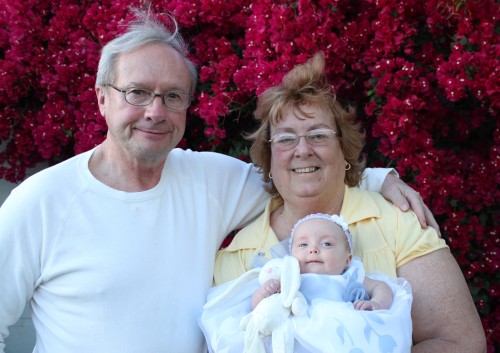ATLANTA, GEORGIA, USA, July 12, 2010 – Nearly 80% of people with Lewy body dementias (LBD) received a diagnosis for a different cognitive, movement or psychiatric disorder before ultimately learning they had LBD, according to the Lewy Body Dementia Association’s Caregiver Burden in Lewy Body Dementias, released today.
This new report reveals people with LBD and their caregivers face barriers to obtaining an early LBD diagnosis. Caregivers rate specialists and general practitioners as inadequate in discussing disease progression. Additionally, caregivers experience moderate to severe emotional burden, and most experience a sense of isolation because so few people know about LBD.
LBD is the second-most common form of degenerative dementia in the elderly, affecting an estimated 1.3 million people in the United States. Symptoms include dementia, unpredictable variations in cognition, attention or alertness; hallucinations, Parkinson’s-like symptoms, a sleep disorder characterized by physically acting out vivid nightmares and dreams, and a potentially life-threatening sensitivity to certain medications.
“LBD is a family disease, affecting not just the person with LBD but also the caregiver,” said Angela Herron, President of LBDA’s Board of Directors. “This report underscores the challenges presented by a disease that affects cognition, movement, behavior, sleep and mood. Despite the fact that LBD is a common form of dementia many doctors and other medical professionals are unfamiliar with LBD, compounding the burden even further.”
Importance of Early Diagnosis and Physician Awareness of LBD
Half of people seeking a diagnosis saw 3 or more doctors for 10 visits over the course of a year before they were diagnosed with LBD, and diagnosis required more than two years from the onset of symptoms for 31% of cases.
Although prognosis varies among individuals, LBD is often a more rapidly progressive disease than Alzheimer’s disease, and early diagnosis provides families an opportunity to plan for expected decline in cognition, function and behavior. Given the evidence that suggests treatment with cholinesterase inhibitors may benefit patients with LBD more than those with Alzheimer’s disease, barriers to diagnosis have a negative impact on both the patients’ and caregivers’ quality of life. Especially important, early diagnosis of LBD provides physicians with an opportunity to minimize exposure to medications that may aggravate symptoms, such as antipsychotic medications. Nearly 60% of people with LBD may experience severe, potentially irreversible reactions to antipsychotic medications, and in rare cases, a life threatening condition called neuroleptic malignant syndrome may also occur.
LBD Progression Not Adequately Addressed
While neurologists made most LBD diagnoses, caregivers most often relied on primary care physicians for ongoing follow-up care and reported difficulties coordinating treatment of LBD symptoms between primary care physicians and specialists, as medication for one LBD symptom may worsen another being treated by a different physician. Caregivers rated over 40% of both generalists and specialists as inadequate in telling families what to expect in the future, and more than half of physicians as inadequate in suggesting telling the family where to find more information on LBD or community-based resources.
“The lack of information on disease progression is a serious challenge to LBD families,” stated Herron. “It’s essential that families plan in advance for the relentless progression of LBD, and not having answers on what that decline will look like or how fast it may occur, adds significant stress to an already difficult situation.”
Caregiver Burden is Physical and Emotional
Caregivers reported moderate to severe levels of disability in the person with LBD and over 90% had taken over instrumental activities of daily living, like preparing meals, managing medications, transportation, finances and appointments. Over 60% of caregivers indicated the person with LBD could not perform basic activities of daily living, such as dressing or bathing.
People with LBD had high rates of behavioral problems and mood changes and two-thirds of caregivers reported a crisis in the past year that required a hospital emergency room, emergency medical services, psychiatric care, or law enforcement.
LBD caregivers face a number of challenges: social, medical, functional and financial. LBD caregivers feel isolated and often have to respond to crises, but may not be receiving adequate support from family, friends or healthcare providers. These features have the potential to lead to adverse outcomes for the caregiver “burnout” including stress, depression and poor health.
“Poorer caregiver outcomes directly lead to increases in patient institutionalization and declines in quality of life, stated Dr. James E. Galvin, a member of LBDA’s Scientific Advisory Council and Professor of Neurology and Psychiatry at New York University. “This may be particularly important in LBD where patients are at an increased risk of institutionalization and mortality.”
The findings are based on data collected by the Lewy Body Dementia Association (LBDA) in an online survey of 962 LBD caregivers. Designed by Steven H. Zarit, PhD, an expert on caregiver burden in dementia and Professor of Human Development at Penn State University, the survey was conducted over a 6-month period. Dr. Galvin analyzed the survey data, which was published in the July, 2010 issue of Parkinsonism & Related Disorders and the April-June, 2010 issue of Alzheimer Disease & Associated Disorders.
The full text of the Lewy Body Dementia Association’s Caregiver Burden in Lewy Body Dementias can be viewed by visiting http://www.lbda.org.
The Lewy Body Dementia Association
The Lewy Body Dementia Association (LBDA) is the leading voluntary health organization in raising awareness of Lewy body dementias (LBD), supporting patients, their families and caregivers, and promoting scientific advances. LBDA’s Scientific Advisory Council is comprised of leading experts from the United States, Canada, the United Kingdom, and Japan in research and clinical management of Lewy body dementias. To learn more about LBDA, visit









